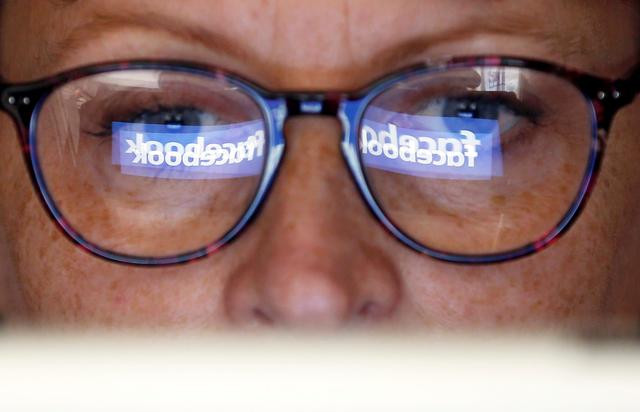 Ukraine reports 5,276 new COVID-19 cases
Ukraine reports 5,276 new COVID-19 cases
 Zelensky: Every third Ukrainian considers road construction one of greatest achievements of 2021
Zelensky: Every third Ukrainian considers road construction one of greatest achievements of 2021
 Ukraine ready to implement Minsk agreements, but Russia's desire needed - Yermak
Ukraine ready to implement Minsk agreements, but Russia's desire needed - Yermak
 Michel: EU unanimously agree to roll over economic sanctions against Russia
Michel: EU unanimously agree to roll over economic sanctions against Russia
 Actions by Ukraine's partners will help prevent worst-case scenario - Zelensky
Actions by Ukraine's partners will help prevent worst-case scenario - Zelensky
 COVID-19 in Ukraine: Health officials confirm 8,899 daily cases as of Dec 17
COVID-19 in Ukraine: Health officials confirm 8,899 daily cases as of Dec 17
 Macron tells Zelensky he declared support for Ukraine in call with Putin
Macron tells Zelensky he declared support for Ukraine in call with Putin
 Zelensky, Scholz discuss gas transit through Ukraine after 2024
Zelensky, Scholz discuss gas transit through Ukraine after 2024
 Ukraine ready for any format of talks with Russia - Zelensky
Ukraine ready for any format of talks with Russia - Zelensky
 Ukraine’s only journalist in Russia facing extremism charges - lawyer
Ukraine’s only journalist in Russia facing extremism charges - lawyer
 PM Shmyhal: First two applications for investment projects worth $96 million filed
PM Shmyhal: First two applications for investment projects worth $96 million filed
 Zelensky, PM of Italy discuss security situation around Ukraine
Zelensky, PM of Italy discuss security situation around Ukraine
 President signs off State Budget 2022
President signs off State Budget 2022
 London considering all options for responding to Russia's aggression against Ukraine
London considering all options for responding to Russia's aggression against Ukraine
 Putin, Biden to hold another round of talks
Putin, Biden to hold another round of talks
 Some 260,000 Ukrainians “victims of human trafficking” over 30 years - prosecutor general
Some 260,000 Ukrainians “victims of human trafficking” over 30 years - prosecutor general
 Ukraine plans to create center to protect energy infrastructure from cyber attacks
Ukraine plans to create center to protect energy infrastructure from cyber attacks
 No clear idea so far when Normandy Four top diplomats set to meet - German Ambassador
No clear idea so far when Normandy Four top diplomats set to meet - German Ambassador
 Ukraine receives EUR 600M in macro-financial assistance from EU
Ukraine receives EUR 600M in macro-financial assistance from EU
 Zelensky holds phone conversation with PM of Israel
Zelensky holds phone conversation with PM of Israel
 Ukraine sets new daily COVID vaccination record
Ukraine sets new daily COVID vaccination record
 MFA: European Union has not yet removed Ukraine from list of safe countries
MFA: European Union has not yet removed Ukraine from list of safe countries
 Kyiv records 1,023 new COVID-19 cases, 29 deaths
Kyiv records 1,023 new COVID-19 cases, 29 deaths
 G7 ambassadors welcome adoption of law on NABU status
G7 ambassadors welcome adoption of law on NABU status
 Ukraine can increase Covid vaccination rates to 1.5M a week – Liashko
Ukraine can increase Covid vaccination rates to 1.5M a week – Liashko
One of Facebook’s third-party fact-checkers accused Britain’s governing Conservative Party on Friday of misrepresenting a BBC News article in its ads on the social media platform.
UK fact-checking charity Full Fact found that Prime Minister Boris Johnson’s party has been funding ads on Facebook that link to a BBC article with an apparently altered headline that reads “£14 billion pound cash boost for schools.”
The actual BBC story is headlined “School spending: Multi-billion pound cash boost announced,” and instead puts the number at £7.1 billion, criticizing the government’s use of £14 billion pound figure as not the usual way of calculating spending.
Full Fact, which is part of the third-party fact-checking program created by Facebook to fight misinformation on the platform, said it had been scrutinizing online advertising ahead of a possible snap election in the country.
“It is wrong for the work of independent journalists to be altered in this way and misleading for readers,” said Will Moy, chief executive of Full Fact.
The charity said it had raised its concerns with Facebook. A Facebook spokesman said the company was looking into the ads in question.
The Conservative Party and the BBC did not immediately reply to requests for comment, but the article’s author, BBC journalist Sean Coughlan, pointed out on Twitter that “the only reference to the £14bn figure in the story is from the head of stats saying it’s not a correct figure to use.”
The story included analysis from Robert Cuffe, the BBC’s head of statistics, who said that the government was not calculating the spending increase in the normal way.
“Describing this as a £14bn increase would make the government seem more generous than it is in fact being,” Cuffe wrote in the analysis.
Full Fact said that the BBC told the fact-checkers that it had never changed the headline of the article. Facebook confirmed that headlines can be altered when running ads on the platform.
“We are working to put safeguards in place to ensure publishers have control over the way their headlines appear in advertisements,” the Facebook spokesman told Reuters.
The fact-checkers said that versions of the Facebook ad using the altered headline have been viewed between 220,000 and 510,000 times since Sept. 2. The ads were showing as “inactive” in Facebook’s public ad library at the time of writing.
































































































































